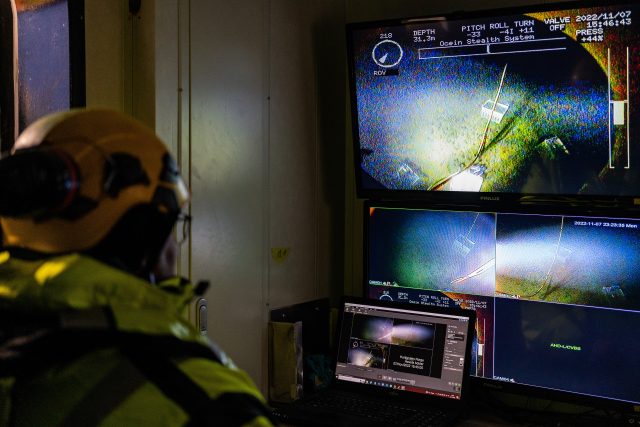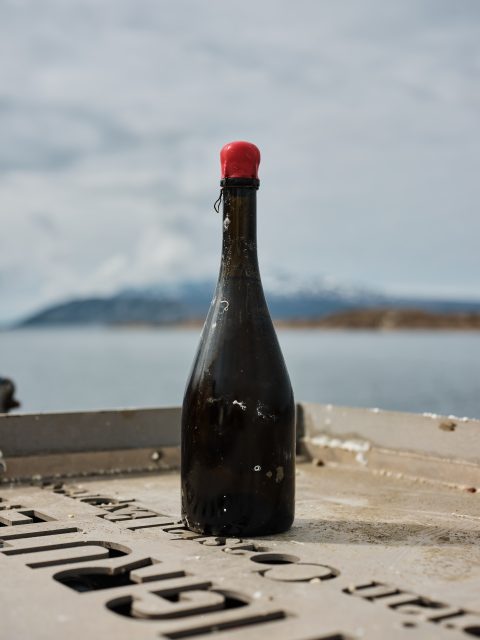East Sussex’s Rathfinny Estate partnered with Norwegian cruise company Hurtigruten on a six month experiment that took English sparkling wine to new depths.

The project, called ‘Havets Bobler’ (translating to ‘bubbles from the sea’), had been in development for over a year. It involved 1,700 wax-sealed bottles of Rathfinny’s Classic Cuvée 2018 being submerged 30 metres beneath the ocean’s surface at 66° north, just short of the latitude of the Arctic Circle, for half a year.
It was suggested that the consistent cool conditions, around 5°C, pressure and relative lack of light at that depth could create the ideal conditions for bottle maturation of the English fizz.
But the proof of the theory is in the tasting. On 12 May, a bottle-raising ceremony was held Sandnessjøen, with the precious cargo dredged from the chilly depths.

Nikolai Haram Svorte, winner of this year’s Norway’s Best Sommelier award, was given the honour of sabring open a bottle and tasting the deep sea drink. He described it as “the start of something truly exciting”, and said: After only six months submerged in Arctic waters this method has ensured the wine remains noticeably vibrant and in great condition by delicately slowing the maturation.”
“I’d expect to taste a rounder mouthfeel and softer bubbles,” he explained, “but to my surprise, the wine has retained more freshness than I anticipated. From the refreshing citrus tones to a mineral salty finish, like an oyster, it’s clear to me that this hugely intriguing experiment has revealed a unique setting to store and age sparkling wine.”
Mark Driver, who co-founded Rathfinny Estate with his wife Sarah in 2010, told WLC: “We’re thrilled to be involved in the project and feel that ageing wine in such a physically cool and dark environment has a lot of merit. To my palate it seemed to arrest the development of the wine under cork, keeping it fresh and exhibiting great fruit characteristics. It will be interesting to try ageing it for longer than the six months that these wines spent on the bottom of the fjord, and that is the plan for the next batch of wine that will be placed on the seabed over the summer.”
“I was also struck by the fact that our Sussex sparkling wines are made within three miles of the iconic Seven Sisters cliffs, that mark the beginning of the South Downs, and the wines are being aged just three miles from the Seven Sisters mountains near Sandnessjøen, Norway. It’s a lovely partnership with Hurtigruten to develop Havets Bobler,” he added.
These unique wines will be served onboard Hurtigruten ships as part of the company’s 130th anniversary celebrations.
The belief that the perfect cellar conditions are found underwater has been suggested before – but it’s unusual for bottles to be deliberately sent down there.
Several of the most expensive bottles of Champagne ever sold have been pulled from the bottom of the ocean. There are also plans to salvage US$20 million worth of rare whiskey from a 170-year-old shipwreck at the bottom of Lake Michigan.
The Scandinavian thirst for English sparkling wine is well-documented, with Norway in particular being a key market.
This article was originally published by the drinks business and has been shared with permission.




